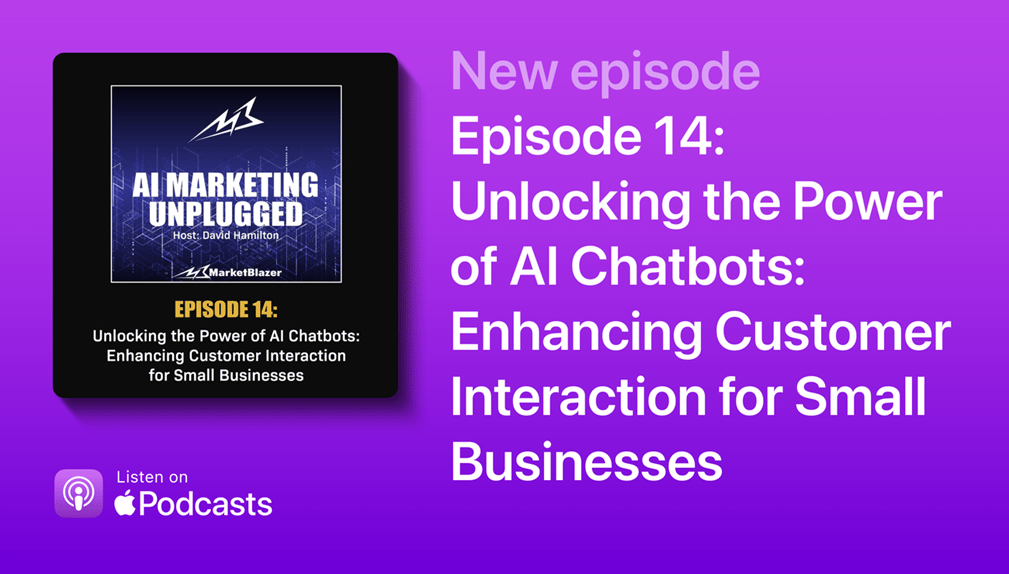- AI Marketing Wire
- Posts
- SEO Myths Busted, YouTube Video Purge, and Next-Gen Chatbots
SEO Myths Busted, YouTube Video Purge, and Next-Gen Chatbots
AI Marketing Wire Issue 14

Does AI content hurt or help SEO?

Welcome to AI Marketing Wire Issue 14! This week, we’re diving into the latest AI breakthroughs shaping digital marketing—from Ahrefs’ reassuring findings on AI-generated SEO content to YouTube’s new policies targeting mass-produced videos. You’ll also discover how Google’s evolving AI features are reshaping search and why OpenAI’s upcoming browser could disrupt the status quo. Additionally, we highlight cutting-edge chatbot innovations and a major funding round that is transforming AI-driven customer service. Let’s explore what these developments mean for your marketing strategy and growth.
🧠 SEO
Ahrefs Study Finds No Evidence Google Penalizes AI Content
A new Ahrefs analysis of 600,000 webpages reveals virtually no correlation between AI-generated content and Google ranking positions, dispelling concerns about algorithmic penalties for using generative tools. Over 86% of top-ranking pages include some form of AI assistance, and the correlation coefficient between AI usage and rank is only 0.011.
Read More
Why It Matters: Content marketers can confidently integrate AI into their workflows without fearing automatic demotion. However, the scarcity of purely AI-generated pages at the very top indicates that human oversight and editorial quality remain critical for achieving #1 rankings.
📺 Social Media
YouTube Takes Aim at Mass-Produced AI Videos
Starting July 15, YouTube will tighten its Partner Program policies to curb ad revenue for repetitive, AI-generated “slop” videos. Although exact criteria haven’t been released, the platform’s updated authenticity guidelines will clarify what constitutes inauthentic content in an AI-driven ecosystem.
Read More
Why It Matters: Marketers and creators relying on automated video production must shift their focus toward creating more original, high-value content to maintain monetization. Brands should invest in authentic storytelling and human-driven creative processes to maximize engagement and ad revenue.
🔍 SEO & Advertising
5 Ways AI Makes Google Search Work Harder for Your Brand
AI is supercharging Google Search with capabilities like visual recognition and intent anticipation, creating new challenges for brands to stand out. From richer answer boxes that bypass traditional SERPs to AI-driven query paraphrasing, these advancements demand a rethinking of keyword strategies and metadata optimization.
Read More
Why It Matters: As AI features occupy more space on results pages, brands must optimize for Answer Engine Optimization (AEO) and Generative Engine Optimization (GEO). This includes structuring content for direct AI citations, enriching schema markup, and crafting concise, authoritative responses that AI models can surface.
🗞 News & Tools
Exclusive: OpenAI to Release Web Browser in Challenge to Google Chrome
OpenAI plans to launch an AI-powered web browser in the coming weeks, integrating chat interfaces and agent-driven workflows directly into the browsing experience. By building Chromium and leveraging ChatGPT’s user base, OpenAI aims to disrupt Chrome’s ad-driven data ecosystem.
Read More
Why It Matters: A new browser from OpenAI could shift valuable user data away from Google, challenging the dominance of Chrome in ad targeting. Businesses should closely monitor this development and explore how AI-driven browsing experiences may impact website analytics, ad performance, and direct-to-consumer engagement strategies.
🤖 Chatbots
Elon Musk’s xAI to Launch Grok 4
Elon Musk’s AI startup xAI is set to unveil Grok 4 on July 9, 2025. Trained on the Colossus supercomputer, Grok 4 boasts advanced logical reasoning, a dedicated “Grok 4 Code” variant for programming assistance, and promises future multimodal capabilities like image generation. It will be available free to X Premium+ subscribers. (Cinco Días, Indiatimes)
Why It Matters: With each new Grok iteration, xAI continues to push the boundaries of conversational AI. Brands exploring generative chatbots should closely track these advances—Grok 4’s enhanced reasoning and coding support may set new benchmarks for real-time customer engagement and shape expectations around bot authenticity and flexibility.
🛎️ Customer Service
Gradient Labs Raises $13 M Series A to Transform Customer Service in Regulated Industries
London-based Gradient Labs secured $13 million in Series A funding to scale its AI platform Otto, which automates complex front- and back-office workflows while ensuring full compliance with regulatory standards. Early deployments report up to 75% cost savings and 98% quality-assurance pass rates. (The AI Insider)
Read More
Why It Matters: Regulatory complexity is a significant barrier to AI adoption in sectors that handle sensitive data. Gradient Labs’ traction—and this significant investment—underscore growing confidence in AI tools that can navigate compliance requirements. Marketers and service teams in finance, healthcare, and legal should evaluate such platforms to streamline support operations without sacrificing legal safeguards.
📬 Stay Connected
Each week, we bring you AI-driven innovations in SEO, social media, advertising, tools, and beyond. Discover the latest updates shaping how businesses leverage AI to stay competitive.
Stay tuned for next week’s roundup, where we’ll cover AI advancements in e-commerce personalization, ad targeting innovations, analytics tools, and more!
Thanks for reading AI Marketing Wire—where smart marketers stay ahead of the algorithm.
🚀 If you found this edition insightful, consider sharing it with a friend or colleague who is AI-curious.
🎧 Explore More on the AI Marketing Unplugged Podcast
Until next week, stay curious, be creative, and try AI.
The AI Marketing Wire Team
🧠 + ❤️ = 📈
#AI #DigitalMarketing #SEO #AEO #GenAI #YouTubePolicy #Chatbots #CustomerService #OpenAI #ContentStrategy



